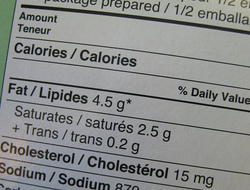Eating for health: day to day planning
Published: October 19, 2018
Menu planning is recognised as an aid for eating for health and can help ensure you are getting the nutrients you need to promote health.
Various diets ranging from diets which ameliorate health concerns such as hypertension, diabetes and gastrointestinal disorders, diets which cater to specific food preferences, and diets which are promoted for weight loss frequently provide the user with menu plans.
These menu plans are intended to help the user consume the “correct” amount of calories and/or type of food to achieve specific outcomes.
Menu plans also help you know which foods you need to purchase ahead of time.
This may make grocery shopping quicker and less stressful by removing the uncertainty about what you are going to eat for your next meal.
Menu plans, although intended to make adherence to the diet easier so that nutrition goals will be met, when created by a nutrition counsellor or popular diet may not be user friendly over the long term.
As such, nutrition goals may be met in the short term, but over time are not sustained.
There are many reasons why a menu plan that you initially follow diligently becomes less palatable over time.
Your initial enthusiasm to achieve your goals and follow the menu plan may be curtailed by life events such as:
- social and family activities
- illness
- work
- food preferences (yours and your family’s)
- cost and availability of food required by the recipes the diet may provide
The menu plan may also overly restrict calories or certain types of food which may lead to you abandoning the diet when you can no longer make do with the foods that are allowed.
When one menu plan fails to be sustainable you try another and then another.
Perhaps you combine some aspects of one menu plan with another, but eventually find yourself back at square one reverting to time tested eating habits, but not habits that will help you reach your nutrition goals.
While menu plans devised by someone else may not be sustainable in the long term, developing your own menu plan may provide you with a plan that you can adhere to over time and which may help you achieve your nutrition goals.
No two people are the same, have the same nutritional requirements, the same goals, the same lifestyles, or live in the same environment.
Therefore, generic menu plans, even menu plans which are intended to be personalised, cannot reflect all your needs under all circumstances.
Sooner or later you will be faced with a situation that your menu plan has not accounted for.
What do you do now?
When there is no involvement in creating a menu plan other than checking boxes on a “requirement” list, the user of a menu plan is not equipped with the knowledge...link to the full article to learn more.
References
2.
Centre for Science in the Public Interest (February 2012) Nutrition Action Health Letter


